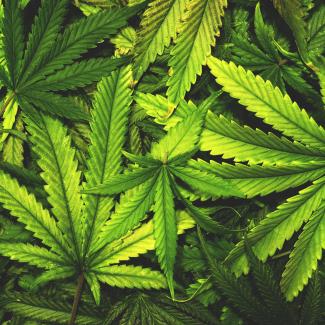Medical marijuana has been shown to treat a variety of ailments, and depression may be one of them. Currently, depression affects 1 in every 20 Americans according to the CDC and more than 15 million adults deal with major depressive disorder in each year. In 2014, more than 42,000 succumbed to suicide. Depression is becoming a public health concern and many people are turning to cannabis as an alternative to prescription therapies.
What is Depression?
Depression, a common and serious mental illness, negatively impacts physical well-being, thought processes and behaviors. Depression causes feelings of sadness, loss of interest in activities, and leads to emotional and physical issues and decreases quality of life. Depression can interfere with work, school, and relationships.
Symptoms vary from mild to severe, including:
- Melancholy or chronic depressed mood
- Loss of interest in various activities
- Appetite Issues — causing weight gain or loss
- Sleep disturbances
- Fatigue, lethargy
- Feelings of worthlessness or guilt
- Difficulty with focus, though-processes, or decision-making
- Suicidal thoughts and/or tendencies
Traditional Therapies May Not Work
While some patients may be able to find help through traditional therapy for depression including psychiatric therapy, cognitive therapy, and prescription medications, others are less responsive to pharmaceuticals or may even experience negative side effects like fatigue, drowsiness, nausea, increased appetite and weight gain, and sexual dysfunction. A report published in the British Medical Journal found shocking statistics of suicides in patients (1) being administered pharmaceutical anti-depressants.
The endocannabinoid system, ECS, has been shown to play a role in depression. This system produces compounds which are similar in nature to the cannabinoids found in cannabis and react much the same way. The ECS helps all the other systems of the body and even some organs function properly. The primary goal of the ECS is to achieve and maintain homeostasis. When the ECS isn’t functioning properly problems manifest in various diseases and ailments, such as depression.
Just a few of the effects of cannabis therapy that may be beneficial in treating depression:
- Sedative – many cannabinoids, including CBD, THC, and CBN exert various levels of sedation that can be beneficial for a calming effect or to aid with sleep which is vital in treating depression.
- Euphoria/Bliss – the endocannabinoid, AEA, produced by the human body is affectionately called “The Bliss Molecule”. When low on AEA, the euphoria created by THC can be very beneficial alternative.
- Calming – CBD, or cannabidiol, is a very calming molecule. This is what makes it so effective in treating seizure disorders, it relaxes the muscles, quiets spasms, and calms the nerves.
“After the death of my mother, a cocktail of anti-depressants and anti-anxiety medications had me falling asleep in meetings at work and behind the wheel of my car during my daily commute. I couldn’t focus, I was in a constant fog, and I had increasing thoughts of dread and suicide. Since switching to cannabis, I don’t have any negative side effects. I’m clear-headed and alert, and I have motivation, creativity, and ambition again. I really believe cannabis-therapy saved my life.” ~ Colorado Cannabis Patient
Science Behind Cannabis Therapy for Depression
New studies are starting to show how supplementing the endocannabinoid system with cannabis may help restore functionality and treat many illnesses with fewer disruptive side effects.
A couple of recent studies have been published on the impact of the endocannabinoid system on development and treatment of depression:
- Chronic Stress – chronic stress is shown to lead to major depressive disorder. Researchers at the University of Buffalo (2) recently discovered chronic stress causes reduced endocannabinoid production. Cannabinoid supplementation through cannabis therapy could help restore endocannabinoid function and treat depression.
- Inflammation – other studies implicate an immune-response (3) could be responsible for some depressive episodes. Cytokines, or inflammation cells, are abundant and cause inflammation of the brains of those suffering from depression. CBD, or cannabidiol, is a well-known anti-inflammatory and has been shown to help control the inflammation process.
If you’ve been struggling to find the right treatment for depression and think that medical cannabis may be able to help you, then schedule your appointment today to meet with one of our physicians.
References
- Suicidality and aggression during antidepressant treatment: systematic review and meta-analyses based on clinical study reports. Tarang Sharma, PhD, et al. Jan 27, 2016, British Medical Journal.
- Wilde, Cathy. RIA neuroscience study points to possible use of medical marijuana for depression. Research Institute on Addictions, University at Buffalo. 2015.
- Inflammatory cytokines in depression: neurobiological mechanisms and therapeutic implications. Felger JC, Lotrich FE. Aug 29, 2013, Journal of Neuroscience.
























